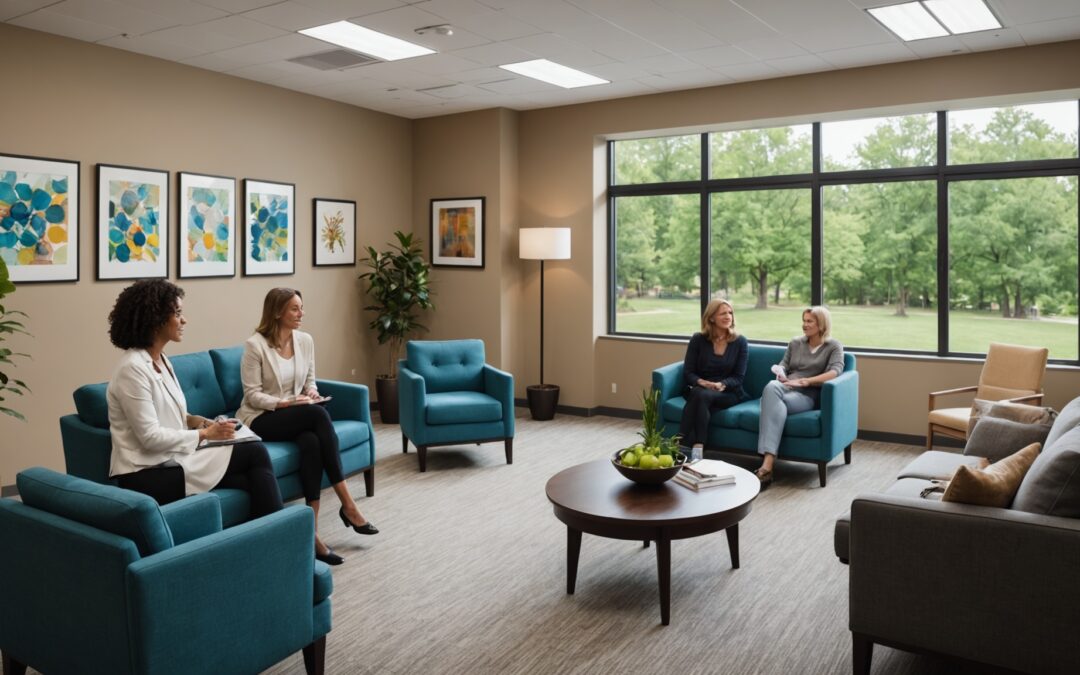Achieving and maintaining sobriety is a journey that involves comprehensive support and understanding. One way to ensure a strong foundation for recovery is through Intensive Outpatient Programs (IOP). These programs provide flexible yet structured environments where individuals can receive the support they need to continue their recovery journey. In this blog post, we will explore how IOP recovery aids in achieving long-term sobriety by offering tailored care, fostering community support, and emphasizing personal growth.
Table of Contents
Understanding Intensive Outpatient Programs (IOP)
Intensive Outpatient Programs, or IOPs, are structured programs designed for individuals who seek recovery support while maintaining their day-to-day responsibilities. Unlike inpatient rehabilitation, IOPs do not require participants to reside at a facility, allowing for greater flexibility and the opportunity to practice newly acquired skills in real-world settings. These programs typically include counseling, group therapy, and educational sessions tailored to the specific needs of those in recovery.
The flexibility that IOPs provide makes them an attractive option for individuals who need to balance recovery with work, family, or educational commitments. Importantly, this flexibility also allows participants to immediately apply the coping strategies and life skills they learn to their everyday situations. This continuous reinforcement of learning creates a more practical approach to recovery, where individuals are constantly reminded of the importance of sobriety amidst the realities of day-to-day life. By staying connected to the realities outside a treatment facility, those in recovery can face challenges in a controlled manner with support, rather than in isolation.
One of the remarkable advantages of IOPs is their structured nature, which ensures that participants receive consistent and comprehensive care without the need to pause their everyday lives. This structure is crucial, as it provides regular touchpoints for individuals to discuss progress and setbacks in an environment that feels safe and supportive. For many, regular access to mental health professionals and peer groups is a valuable aspect of IOPs, offering insight and advice from different perspectives. These interactions help to not only prevent relapse but also to refine the recovery tools each individual has at their disposal.
The Role of Personalized Care in IOP Recovery
A significant advantage of IOPs is the level of personalized care they offer. Each participant undergoes an initial assessment to determine their unique needs and goals, which then guides the creation of a customized recovery plan. This tailored approach ensures that individuals receive the support and resources most relevant to their recovery journey, enhancing their chances for long-term sobriety.
Personalization in IOPs is not merely about customization for its own sake; it is about understanding the unique context each participant comes from. Factors such as past trauma, family dynamics, or co-occurring disorders can dramatically influence the path to recovery. By catering to these elements through specialized therapies and interventions, IOPs offer a depth of care that is responsive to the complexities of each individual’s life circumstances. This approach not only personalizes the recovery journey but also embodies respect for each participant’s pace and specific challenges.
Many IOPs integrate various therapeutic approaches to provide personalized care, including Cognitive Behavioral Therapy (CBT), Dialectical Behavior Therapy (DBT), and motivational interviewing. By combining different methods, programs can better meet the varied psychological and emotional needs of participants. For example, while one individual might benefit from understanding how their thoughts influence behaviors through CBT, another might find value in the interpersonal effectiveness skills taught in DBT. This tailored methodology helps participants to embrace recovery methods that resonate most with them, enhancing engagement and motivation for sustained sobriety.
Building a Supportive Community
Community support is a cornerstone of successful recovery, and IOPs provide a nurturing environment for fostering such connections. Group therapy sessions within IOPs allow participants to share experiences, gain insights, and build relationships with others who are on similar paths. This sense of community can be instrumental in reducing feelings of isolation and encouraging accountability among peers.
IOP group sessions are a melting pot of empathy and shared wisdom. By engaging with peers who are also navigating the path to sobriety, participants gain diverse perspectives and strategies that might not have been considered individually. This collective wisdom is invaluable, especially when facing difficult moments where a peer’s story of resilience can serve as motivation and hope. Those who share in group settings often find strength not just from being understood but also in understanding and helping others—a give-and-take that fortifies all involved.
Beyond therapy sessions, the relationships fostered in IOPs often extend into daily life. Participants frequently report forming bonds that lead to independent support networks, which can include regular meetups, shared activities, or even friendship cohorts. These relationships often evolve into lifelines that enhance participants’ social support system, bridging the transition from IOP to broader community living. This ongoing connectivity helps individuals practice sober living within a community context, merging recovery with life in a meaningful way.
Emphasizing Accountability and Personal Growth
IOPs emphasize the importance of accountability in recovery, encouraging participants to set and achieve personal goals. Regular check-ins and progress evaluations help individuals stay on track and adjust their recovery plans as needed. Moreover, IOPs focus on equipping participants with life skills and coping strategies, empowering them to handle challenges and maintain sobriety in the long run.
Accountability is an integral part of the IOP framework, with regular meetings and feedback loops ensuring participants remain focused on their recovery goals. This environment empowers individuals to take ownership of their progress while offering the necessary support to overcome obstacles. By setting realistic, incremental goals, participants build a sense of achievement that encourages continued sobriety. Furthermore, the skills developed during IOP sessions—such as stress management, communication, and emotional regulation—serve as vital tools in managing triggers and maintaining a balanced lifestyle post-treatment.
Personal growth within IOPs is nurtured by a culture of positive reinforcement and self-reflection. Participants are encouraged to examine their behaviors and thought patterns in a non-judgmental environment, promoting introspection and self-awareness. This process often leads to profound insights about personal strengths and areas for improvement. With the guidance of experienced therapists and counselors, individuals in IOPs learn to reconcile with their past and construct a future aligned with their sobriety goals. This journey of personal transformation is not just about stopping substance use but also about rediscovering purpose and building a fulfilling life.
Embracing IOP: A Pathway to Sustainable Sobriety
In the pursuit of long-term sobriety, Intensive Outpatient Programs stand out as a vital component. They offer a supportive and flexible framework that empowers individuals to integrate recovery into their daily lives. By focusing on individual needs, creating a supportive community, and emphasizing personal accountability, IOPs play a crucial role in fostering sustainable sobriety. Embracing IOP recovery can be the key to unlocking a fulfilling, sober life. Visit Miracle’s to learn more about how IOP can support your sobriety journey.











